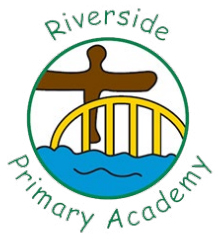Homework Policy
At Riverside Primary Academy we provide all children with homework to enable them to practise skills and learning they have already done in school. Sometimes the aim is to repeat something done in class as a practise exercise. On other times, the homework will ask children to apply their learning to a new context. At all times, however, children will not be given work to do at home that they have not learned in school unless it is a project which asks them to find out about something new. For example, to do their own project about the Romans.
Our Aims
We aim to provide opportunities for parents/carers to work alongside their child or children to support their learning in school. This is because we want to work as a partnership in your child’s learning – school, the child and their parents working together to help your child to reach their potential.
As guidance only, we suggest the following as good practice:
Nursery, Reception and Year 1 – to learn nursery rhymes, songs and read books together. Talk about the difference between pictures and words, titles, authors’ names and predict what will happen next in the story. Read poems and rhymes and information books as well as stories. Children will have letter work to do at home and games to play. Once children can read, they should read their school book every day for approximately five minutes every single day.
Year 2, Year 3 and year 4 – To read their school book or another book every single day at home for around ten to twenty minutes. Discuss the way we read punctuation as well as words, how bold or italic words are read differently. Look for how advanced punctuation is used. For example, speech marks, brackets, commas, apostrophes etc. It is very important that adults discuss these things with their child as they are not likely to notice them on their own.
In Years 2, 3 and 4 all children will receive pieces of writing to practise at home. These will be elements of what they are learning at school. Writing entire stories, poems or reports would benefit your child enormously but is not usually the kind of practise that children in these age groups are given for homework.
By year 2, all children need to learn their 2x, 5x and 10x tables fluently.
By year 3, all children need to continue to practise their 2x, 5x and 10x tables but to also learn their 3x, 4x, 6x, 7x, 8x and 9x tables.
By year 4, all children need to consolidate their times tables and improve the speed of their recall and learn what the corresponding division facts are. For example, 7 x 6 = 42. Also 42 = 7 x 6.
Project work is a fun way to do homework. It will allow children to develop their creativity in how they wish to present their work and give them some freedom in developing the aspects of the research that particularly interest them. Within project work, children get the opportunity to develop their creative interests.
Year 5 and Year 6 – Many of the aspects of year 5 and 6’s homework is in line with the homework for years 2 to 4 but it requires much more depth of study. Children will receive homework covering other areas of the curriculum and their work will begin to require more concentration and self application. Reading should increase to include regular sustained periods so that children develop the habit of ‘getting into a good book’. (Reading a few pages every few days inhibits this). Although fluent readers are likely to be reading independently by this age, parents/carers still need to hear them to read out loud to develop their fluency in harder text types. Developing readers will still need reading support on a daily basis.
Children in Year 5 and 6 may be given more pieces of sustained writing to plan or complete at home. Children of this age should know what features make a good story, a good letter, a good report, a good newspaper article etc.
In maths, children will receive support work for the learning they are doing in class. Children will also receive practise test papers near the time of their SATs to help them become familiar with the test format. By year 5 and year 6, it is expected that all children should have fluent recall of their times tables. Children forget them if they are not used, so a regular (daily if possible) quick and short tables quiz would help your child retain what they have learned.
All children in Years 5 and 6 will, from this year, be given research projects to do which will involve a range of skills and will involve using the internet (at home or school). We would like children to include art and craft ideas as well as reading and writing within these projects and most of all, we want them to have fun whilst doing them.
Our staff hope that you can support us in getting the balance right. We want to work together with you to do help your child be the best they can possibly be and reach their full potential. If you have any concerns about the homework set, or, you feel that the homework is just right, please do come in and see your child’s teacher at the door in the morning.
It is worth noting that when children deliberately do not attempt to do homework (and this does not include when family emergencies occur), children will be required to remain inside during their own time to complete their work. Allowing one child to opt out of doing homework whilst everyone else is expected to complete it causes bad feeling amongst a class. We therefore make it very clear that we expect everyone to be treated equally and all children are required to complete homework.



